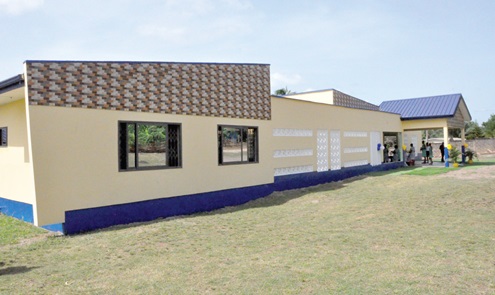7 reasons why people get deported from the US and 10 dangers of deportation

7 reasons why people get deported from the US and 10 dangers of deportation
People can get deported from the United States for various reasons, typically related to violations of immigration laws or criminal activities. Here are some common reasons for deportation:
Unlawful Entry Into The US
Individuals who enter the United States without proper documentation or authorization can be subject to deportation if they are apprehended by immigration authorities.
Visa Overstay Will Get You Deported From The US
Non-immigrant visa holders are given a specific period of authorized stay in the U.S. If they remain in the country beyond their authorized period without obtaining an extension or change of status, they can face deportation.
Violation of Immigration Laws Will Get You Deported From The US
Engaging in activities that violate immigration laws, such as working without proper authorization, marrying solely for immigration benefits, or providing false information on immigration applications, can result in deportation.
Criminal Offences Will Get You Deported From The US
Committing certain crimes, including both misdemeanours and felonies, can lead to deportation. These crimes may include drug offences, theft, fraud, domestic violence, aggravated felonies, or crimes of moral turpitude.
Engage In Immigration Violations And You May Be On The Next Available Plane
Failing to comply with immigration regulations, such as not reporting address changes, failing to register with immigration authorities, or violating the terms and conditions of a visa, can be grounds for deportation.
READ: 7 Tips for Responsible Tourism: What to Consider Before You Travel
Public Safety and Security Issues
Individuals who pose a threat to public safety or national security, including those involved in terrorism, espionage, or activities that support criminal organizations, can be deported.
Immigration Status Violations Will Get You Deported From The US
Violating the conditions of a specific immigration status, such as working without authorization on a student visa or engaging in unauthorized employment on a temporary work visa, can result in deportation.
It is important to note that deportation proceedings generally involve a legal process and individuals facing deportation have the right to present their case before an immigration judge. In some cases, individuals may be eligible for relief from deportation or other forms of legal recourse based on their circumstances.
Though it is not impossible to return to the U.S. after being deported, you must file Form I-212 before the expiration of a required waiting time to be granted entry again. Hence, ensure you enter the US legally and remain super law-abiding when you get in there, or you will exit before you know it.
READ: 7 Tips for Responsible Tourism: What to Consider Before You Travel
10 Dangers of getting deported from the US
- Separation from family and loved ones, resulting in emotional distress and strained relationships.
- Loss of job, financial stability, and access to healthcare, leading to economic hardships.
- Difficulty in reestablishing a stable life in the home country due to cultural and social readjustment challenges.
- Risk of persecution, discrimination, or violence in the home country, especially for individuals seeking asylum or escaping dangerous situations.
- Limited educational and career opportunities, hindering personal growth and professional development.
- Inability to access the same level of legal protection and rights as in the United States.
- Disruption of ongoing legal processes, such as pending immigration cases or applications for citizenship, resulting in significant setbacks.
- Psychological impact, including feelings of shame, guilt, and stigma associated with deportation.
- Restrictions on future travel to the United States and other countries, limiting personal and professional opportunities.
- Possibility of re-entry into the United States becoming more challenging or even barred, exacerbating the long-term consequences of deportation.
What happens to your properties in the US when you are deported?
When someone is deported from the US, their properties typically remain in the country, but they may face challenges in managing or accessing them, such as being unable to sell or rent the properties or facing legal complications in maintaining ownership depending on the specific circumstances and legal agreements involved. This means that you will often lose all the properties you have especially if you do not have anyone back in the US to manage them for you. That in itself is difficult.
Send Stories | Social Media | Disclaimer
Send Stories and Articles for publication to [email protected]
We Are Active On Social Media
WhatsApp Channel: JOIN HERE
2024 BECE and WASSCE Channel - JOIN HERE
Facebook: JOIN HERE
Telegram: JOIN HERE
Twitter: FOLLOW US HERE
Instagram: FOLLOW US HERE
Disclaimer:
The information contained in this post on Ghana Education News is for general information purposes only. While we endeavour to keep the information up to date and correct, we make no representations or warranties of any kind, express or implied, about the completeness, accuracy, reliability, suitability or availability with respect to the website or the information, products, services, or related graphics contained on the post for any purpose.



 Old students build health centre for Awudome SHS
Old students build health centre for Awudome SHS  Move away from traditional theoretical based learning – Prof Abeku Quansah to students
Move away from traditional theoretical based learning – Prof Abeku Quansah to students  Professor Amin Alhassan speaks at 20th Congregation of Islamic University College
Professor Amin Alhassan speaks at 20th Congregation of Islamic University College  WASSCE Results Upgrading: Total Scam Or Something Worth Your Money?
WASSCE Results Upgrading: Total Scam Or Something Worth Your Money?